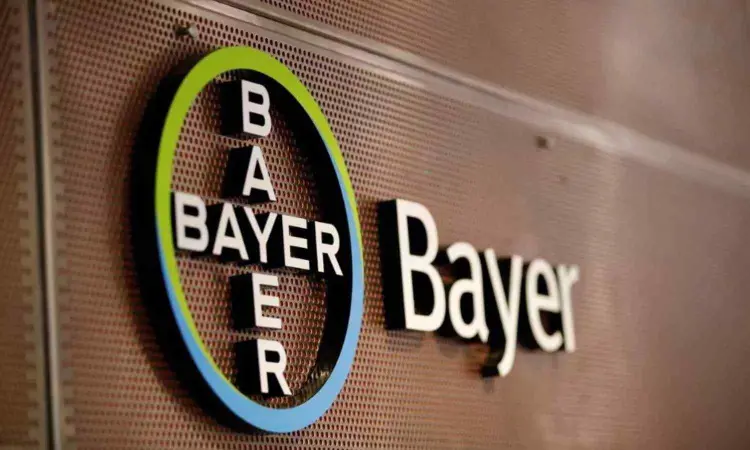- Home
- Medical news & Guidelines
- Anesthesiology
- Cardiology and CTVS
- Critical Care
- Dentistry
- Dermatology
- Diabetes and Endocrinology
- ENT
- Gastroenterology
- Medicine
- Nephrology
- Neurology
- Obstretics-Gynaecology
- Oncology
- Ophthalmology
- Orthopaedics
- Pediatrics-Neonatology
- Psychiatry
- Pulmonology
- Radiology
- Surgery
- Urology
- Laboratory Medicine
- Diet
- Nursing
- Paramedical
- Physiotherapy
- Health news
- Fact Check
- Bone Health Fact Check
- Brain Health Fact Check
- Cancer Related Fact Check
- Child Care Fact Check
- Dental and oral health fact check
- Diabetes and metabolic health fact check
- Diet and Nutrition Fact Check
- Eye and ENT Care Fact Check
- Fitness fact check
- Gut health fact check
- Heart health fact check
- Kidney health fact check
- Medical education fact check
- Men's health fact check
- Respiratory fact check
- Skin and hair care fact check
- Vaccine and Immunization fact check
- Women's health fact check
- AYUSH
- State News
- Andaman and Nicobar Islands
- Andhra Pradesh
- Arunachal Pradesh
- Assam
- Bihar
- Chandigarh
- Chattisgarh
- Dadra and Nagar Haveli
- Daman and Diu
- Delhi
- Goa
- Gujarat
- Haryana
- Himachal Pradesh
- Jammu & Kashmir
- Jharkhand
- Karnataka
- Kerala
- Ladakh
- Lakshadweep
- Madhya Pradesh
- Maharashtra
- Manipur
- Meghalaya
- Mizoram
- Nagaland
- Odisha
- Puducherry
- Punjab
- Rajasthan
- Sikkim
- Tamil Nadu
- Telangana
- Tripura
- Uttar Pradesh
- Uttrakhand
- West Bengal
- Medical Education
- Industry
Bayer seeks EMA nod for Gadoquatrane

Berlin: Bayer has announced the submission of a marketing authorization application to the European Medicines Agency (EMA) for its investigational contrast agent gadoquatrane for contrast enhancement in magnetic resonance imaging to detect and visualize known or suspected pathologies in all body regions and the central nervous system (CNS) in adults and pediatric patients including neonates.
The submitted dose of 0.04 mmol gadolinium per kilogram body weight represents a gadolinium dose reduction of 60 percent compared to the standard of care macrocyclic contrast agents dosed at 0.1 mmol Gd/kg body weight. If approved, gadoquatrane would become the lowest dose macrocyclic GBCA available in the European Union.
“With this submission, Bayer is seeking to offer a low dose option for patients and their treating physicians in the EU,” said Dr. Konstanze Diefenbach, Head of Radiology Research & Development, Bayer. “This commitment aligns with recommendations from health authorities and guidelines from scientific bodies in Europe and beyond, which recommend using the minimum dose necessary to acquire the needed clinical information. Patients, particularly those with chronic conditions who need multiple contrast-enhanced MRI scans over their lifetime, can benefit from a reduction in dosage.”
An estimated 16 million contrast-enhanced MRI scans are conducted annually within the European Union. Over the past five years, the number of contrast-enhanced MRI procedures has experienced an annual growth rate of around 5 percent there.
The submission of gadoquatrane to the European Medicines Agency is based on positive data from the pivotal Phase III QUANTI studies evaluating the efficacy and safety of gadoquatrane across a broad range of indications in adult and pediatric patients globally.
The pivotal QUANTI clinical development program investigated gadoquatrane at a dose of 0.04 mmol Gd/kg body weight. QUANTI consisted of two large multinational, randomized, prospective double-blind, crossover Phase III studies – QUANTI CNS (Central Nervous System) and QUANTI OBR (Other Body Regions) – as well as the QUANTI Pediatric study. In total, 808 patients in 15 countries participated in the program.
The QUANTI study results show that gadoquatrane met the primary and secondary efficacy endpoints of the studies assessing visualization parameters and lesion detection.
Results of QUANTI Pediatric demonstrated that the pharmacokinetic and safety profile of gadoquatrane in children is similar to that in adults. The safety events observed with gadoquatrane in the program were similar to those observed for the comparator macrocyclic gadolinium-based contrast agents with a low incidence of intervention related treatment emergent adverse events and generally consistent with previous data on gadoquatrane and other macrocyclic gadolinium-based contrast agents. No new safety signals were observed.
First results from the Phase III QUANTI CNS study were presented at the European Congress of Radiology (ECR) in February of this year and further results are planned to be presented at upcoming scientific meetings.
With an estimated 65 million procedures performed annually worldwide, contrast-enhanced MRI plays a key role in the healthcare continuum. MRI is a non-invasive, radiation-free imaging method that provides detailed images of the body, helping to identify and distinguish potential abnormalities in organs and tissues. This supports physicians in answering critical medical questions related to the detection, characterization, and monitoring of diseases.
Ruchika Sharma joined Medical Dialogue as an Correspondent for the Business Section in 2019. She covers all the updates in the Pharmaceutical field, Policy, Insurance, Business Healthcare, Medical News, Health News, Pharma News, Healthcare and Investment. She has completed her B.Com from Delhi University and then pursued postgraduation in M.Com. She can be contacted at editorial@medicaldialogues.in Contact no. 011-43720751
Dr Kamal Kant Kohli-MBBS, DTCD- a chest specialist with more than 30 years of practice and a flair for writing clinical articles, Dr Kamal Kant Kohli joined Medical Dialogues as a Chief Editor of Medical News. Besides writing articles, as an editor, he proofreads and verifies all the medical content published on Medical Dialogues including those coming from journals, studies,medical conferences,guidelines etc. Email: drkohli@medicaldialogues.in. Contact no. 011-43720751


